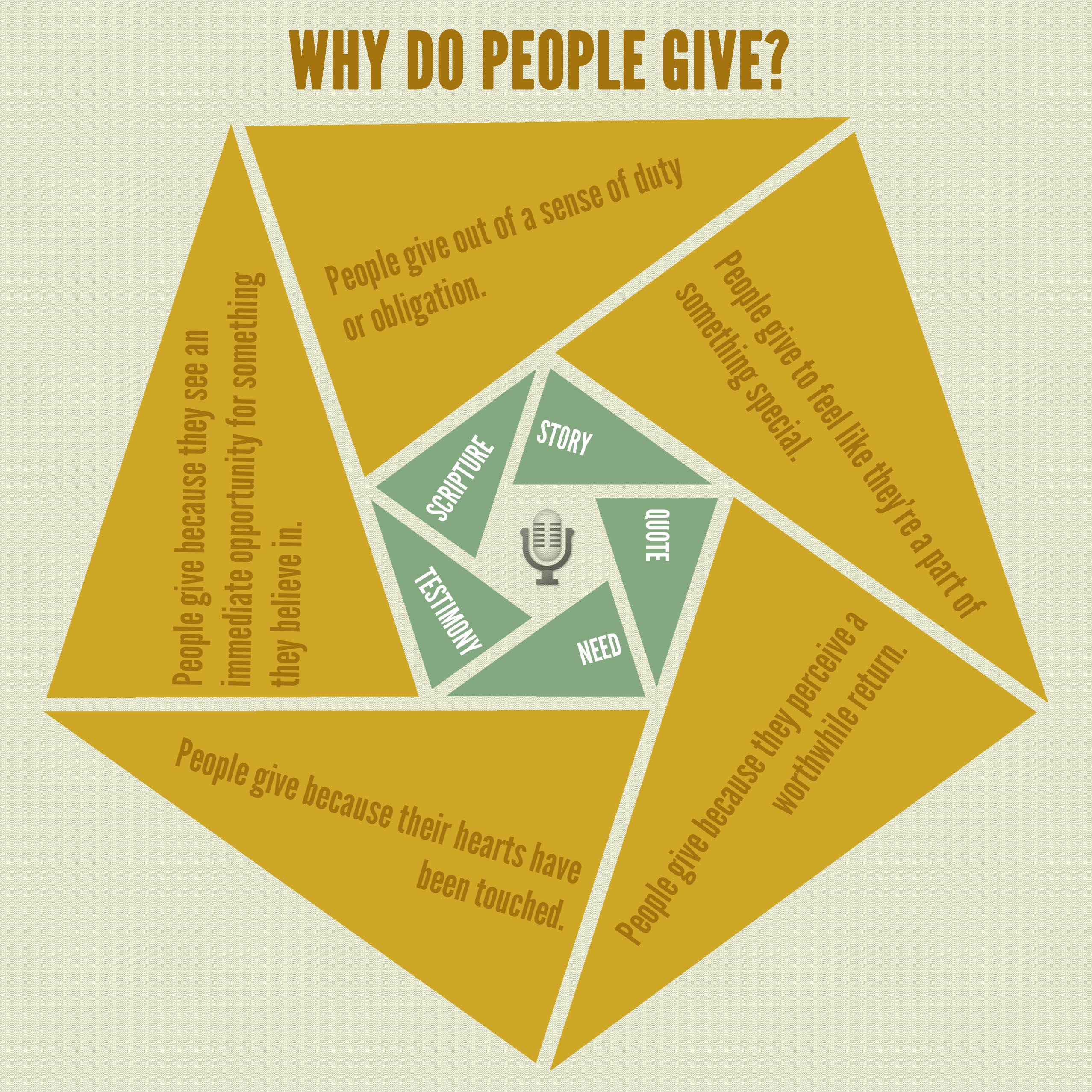I still have the email from Tim begging me to stop squirming for money. Tim had been attending Westwinds for about six months when he reached his breaking point. He said I was “agonizing” and that my words prior to the offering were “like a slow torture.”
But let’s be clear: Tim wasn’t asking me to stop asking for money. Tim was begging me to stop asking for money like I was an 8th grade boy at the prom scared of my date.
Despite having almost a decade of ministry experience when I came to Westwinds, I had never been responsible for setting up the offering on a regular basis. It’s hard. No matter who you are or how much you give personally, there will always come a time when you feel like you’re pleading with people to give Jesus their spare change. And then it gets worse. As the feeling intensifies, you can even begin to feel like you’re asking people not to buy groceries or pay rent.
But these feelings are fraudulent. God doesn’t need our money. I give my money to God because I serve him, and giving liberates me from greed, from selfishness, and from materialism. Giving reminds me that—no matter how much I have—it all comes from God and I’m investing in his kingdom through his church.
Tim’s email was a loving way of reminding me that giving is an act of worship, not a demand for charity. I’m thankful he sent it, because that was the point when I finally began to ask: Why do people give?
There are five reasons people give.
First, people give out of a sense of duty or obligation. They feel like they’re supposed to give, or that giving will make them good Christians or upstanding citizens. This is the lowest motivation for generosity. People who give out of obligation won’t benefit much from their contributions. The recipient of their gifts will benefit, but the giver will only feel like they’ve dodged a guilt-bullet. These people need to learn how to be generous in every way—not just with money, and not just with a particular amount—but with every aspect of their lives, including their time, their friendship, their possessions, and their abilities.
The second reason people give is to feel like they’re a part of something special. For example, many people in Jackson give money to our youth center (hubjackson.org) because they want to feel like they’re contributing to promote positive change in our teens. Even though these people can’t necessarily volunteer, they can help pay the bills, and they want to because they see the value in our organization.
Third, people give because they perceive a worthwhile return. They consider their gift an investment. Supporting a missionary in another country is this kind of giving. The people at home value the spread of the Christian message abroad to such a degree they’re willing to fund it.
People also give because their hearts have been touched. Consider those who give in response to a starving family or needy child. We see others suffering and realize we have the power to make their suffering stop. All it costs us is money, and we’re more than happy to part with our cash if it can ease someone else’s pain.
Finally, people give because they see an immediate opportunity for something they believe in. If a community organizer wants to build a playground and informs them there’s cheap property for sale for a limited time, then the community organizer will be able to rouse constituents’ generosity, since they’ve got to strike while the iron is hot.
Whenever we talk about money we should boldly and knowingly cater our conversation to these motivations. We give because it’s good in at least five ways, and we want to celebrate this goodness in others and model this goodness for the world.
fossores
Related posts
Categories
Category Cloud
Tag Cloud
Recent Posts
- Victors and Victims November 6, 2018
- 3 Hacks for Happiness October 29, 2018
- Hope Against Death September 20, 2018
- The Shape Of The Cross September 19, 2018


